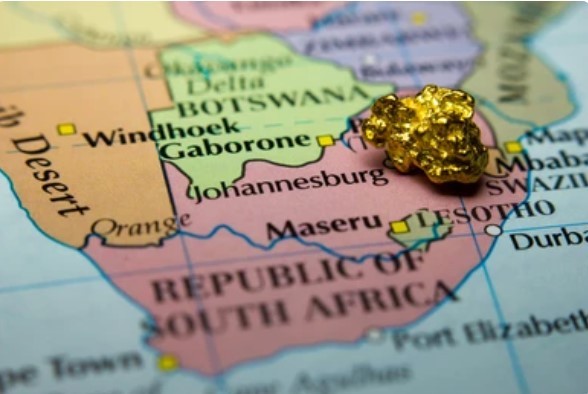Exporting Gold From Africa | A Complete Guide to the industry, Regulations and Opportunities in 2025.
Exporting gold from Africa involves navigating complex legal and regulatory requirements. This process ensures that the gold trade is conducted transparently, ethically, and in compliance with international and national laws.
gold buyers Africa a company known for its trustworthy in exporting gold from Africa with their team of expertise round Africa.
Understanding these requirements is crucial for successful legal operations for businesses and individuals seeking to engage in the gold export industry. Here are nine key legal requirements for exporting gold from Africa:

Licensing and Registration
The first step in exporting gold from Africa is obtaining the necessary licenses and registrations. Each country in Africa has its own regulatory body responsible for mining and export activities. For instance, in countries like Ghana, South Africa, and Kenya, exporters must secure a license from the Ministry of Mines or the relevant regulatory agency. This license is typically issued after the exporter proves they comply with national regulations and have the required technical and financial capacity. In addition, businesses often need to register with local chambers of commerce and other relevant bodies.
Export Permits
An export permit is essential for legal gold exports. This permit is issued by the national government or a designated authority overseeing the export of minerals. The process usually involves submitting detailed documentation about the gold being exported, including its origin, purity, and quantity. This ensures that the gold is legally sourced and complies with national and international trade regulations. Export permits help prevent illegal trade and ensure that gold revenues contribute to the country’s economy.
Proof of Legal Origin
Demonstrating the legal origin of gold is critical in the export process. Many African countries require exporters to provide certificates or documentation proving that the gold was mined in accordance with national laws and regulations. This may include mining licenses, certificates of origin, and environmental compliance reports. Additionally, adherence to the Kimberley Process Certification Scheme (KPCS), which prevents the trade in conflict diamonds, is often required to certify that the gold is free from conflict-related issues.
Customs Declaration and Documentation
Exporting gold involves extensive documentation to comply with customs regulations. Exporters must submit a customs declaration form detailing the gold’s quantity, value, and other relevant information. Accompanying this declaration are invoices, packing lists, and certificates of analysis. These documents help customs authorities verify the legitimacy of the export and ensure that all applicable taxes and duties are paid. Accurate documentation is crucial to avoid delays or penalties during the export process.
Tax Compliance
Exporting gold from Africa entails adhering to tax regulations, including value-added tax (VAT) and other applicable duties. Tax compliance varies by country but generally involves submitting tax returns and paying any taxes due on the gold being exported. Some countries offer tax incentives or exemptions for gold exports, but exporters must still comply with all tax reporting requirements. Proper tax planning and consultation with local tax authorities can help navigate these requirements effectively.
Anti-Money Laundering (AML) Regulations
Due to the high value of gold, anti-money laundering (AML) regulations are stringent. Exporters must adhere to AML laws designed to prevent illegal financial transactions and the financing of terrorism. This involves conducting due diligence on buyers and sellers, maintaining detailed records of transactions, and reporting suspicious activities. Compliance with AML regulations helps ensure that the gold trade does not inadvertently support illegal activities and promotes transparency in the industry.+256785307551
Environmental and Social Compliance
Environmental and social compliance is increasingly important in the gold export sector. Many African countries have stringent regulations to protect the environment and local communities from the adverse effects of mining. Exporters must demonstrate that their operations comply with environmental laws, such as waste management and land reclamation requirements. Additionally, social compliance involves ensuring fair labor practices and respecting the rights of local communities. Failure to meet these standards can result in fines, sanctions, or revocation of licenses.
Health and Safety Regulations
Health and safety regulations are essential for protecting workers and communities involved in gold mining and export activities. Exporters must adhere to occupational health and safety standards set by national authorities. This includes providing proper training, safety equipment, and maintaining safe working conditions. Compliance with health and safety regulations not only protects workers but also reduces the risk of operational disruptions and legal liabilities.
International Trade Agreements and Sanctions
Finally, international trade agreements and sanctions play a significant role in the gold export process. Exporters must be aware of and comply with international agreements that govern the trade of gold, such as bilateral trade agreements and global trade regulations. Additionally, sanctions imposed by international bodies or specific countries can affect gold exports. It is crucial to stay informed about any trade restrictions or sanctions that may impact the ability to export gold to certain markets.
Reasons Why Africa is a Prime Gold Export Hub. Exporting Gold from Africa
Rich Natural Resources. Africa is known as a home of abundant mineral resources having the largest gold reserves around the world countries like Uganda, South Africa, Ghana, and Mail have remarkable gold deposits that help in production levels around Africa
Growing Investment. The Increase in foreign investment has helped the mining industry to expand which helped in the improvement of infrastructure, and technology boosting Africa’s mining sector which has given Africa the capacity to meet the world’s gold demand for export.
Geographical Conditions. Africa has a favorable geological location which is close to major gold markets in Europe, the Middle East, and Asia which has helped buyers reduce transportation costs and improve access to these countries.
Government Support. Many African governments have created good working environments for gold export processes and international trade like giving tax breaks and simplifying the export process which led to the promotion of mining
Global Demand. The increase in world demand for gold for various uses, like jewelry, and electronics, to fight against inflation has led to an increase in Africa as an attractive source for gold exports.
Gold Exporting Countries in Africa and Their Requirements. Exporting Gold from Africa.
1 South Africa
Exporters must have these requirements. Must have a license from the Department of Mineral Resources and also register with South African Revenue obtain an assay certificate verifying the gold’s purity, the export permits, and adhere to environmental regulations.
Ghana
These are the requirements needed to export gold from Ghana gold, exporters must be registered with the Precious Minerals Marketing Corporation (PMMC), a mining and export license an assay report is which is a must, and ownership to certify that the gold is conflict-free. Ghana also mandates compliance with environmental.
Mali
Gold exporters in Mali must have a mining and export permit from the Ministry of Mines and Energy. Obtain a certificate of origin and customs clearance, and exporters must comply with the anti-money laundry regulations.
Tanzania
Requirements to export gold from Tanzania, Exporters must obtain a mining license that complies with the Mining Act, get an export permit, certificate of origin, and declaration form and environmental regulations must also be followed.
Uganda
And these are the requirements needed to export gold from Uganda firstly you obtain a gold trading license from the Directorate of Geological Survey and Mines, an export permit, a certificate of origin, an assay report verifying the gold’s purity, and a customs declaration form are required. Exporters must also comply with anti-money laundering (AML) laws. Exporting Gold from Africa
Roles of Africa in the Global Gold Supply Chain
Raw Material Supplier. Africa is a top gold producer supplying a large portion of the world’s gold production in countries like Uganda, South Africa, Mail, and Ghana
Investment Destination. The continent attracts global investments in mining, leading to technological advancements and increased production capacity.
High-Quality Gold. Africa’s known source of gold is highly regarded for purity making it a home for buyers’ and investors’ choice for jewelry, bullion, and industrial uses around the world.
Economic Growth. Gold exports have contributed to the development of African national GDPs and foreign exchange earnings increasing the economies of many African countries.
International Markets. Africa is known to export large volumes of gold becoming critical markets in Europe, North America, and Asia, supporting demand in industries ranging from electronics to investment. Exporting Gold from Africa
Laws And Regulations To Follow when Exporting gold From Africa.
Licensing: Ensure that the miner you are dealing with is properly licensed by the local authorities to allow him to operate and sell gold.
Export Regulations: Familiarize yourself with the export regulations of the country from which you are buying gold each country has specific export requirements and ensure all necessary permits are secured.
Tax Compliance. Make sure you understand the tax and duty implications applied to buying and exporting gold as these can vary by country.
Anti-Money Laundering Laws. Make sure you understand the local and international anti-money laundering laws that may affect your transaction.
STEPS TO FOLLOW WHEN EXPORTING GOLD FROM AFRICA.
Purity. Always ensure the gold you’re buying meets international standards by testing it or requesting certification to avoid affecting its value.
Price. Keep comparing prices across different miners to ensure you are getting a fair deal with international gold prices to negotiate effectively.
Source. Ensure that the gold you’re buying is sourced ethically without exploiting labor and damaging the environment.
Quantity. Make research to determine if the miner can meet the amount of gold you would like to buy and if the miner can meet your requirements.
Legal Compliance. Ensure all the legal paperwork and certificates are obtained to avoid future complications and to see if the transaction complies with local laws and regulations.
Payment Security. Always choose a secure payment method like escrow mostly if you’re doing large transactions.
